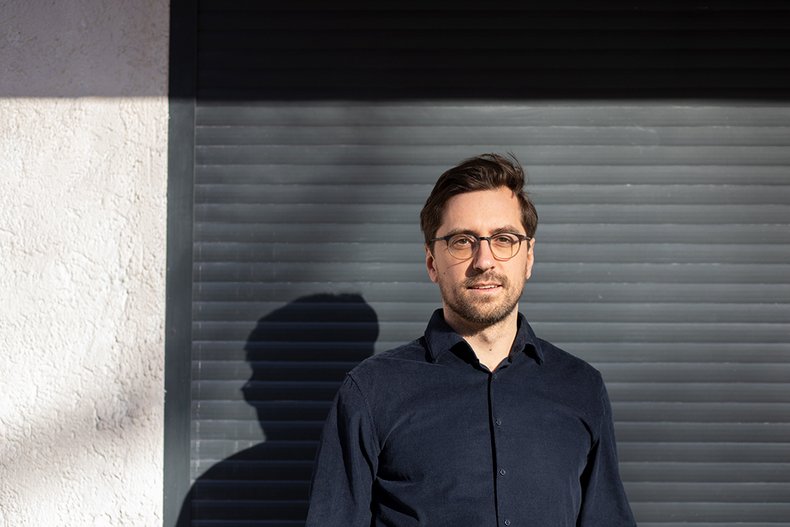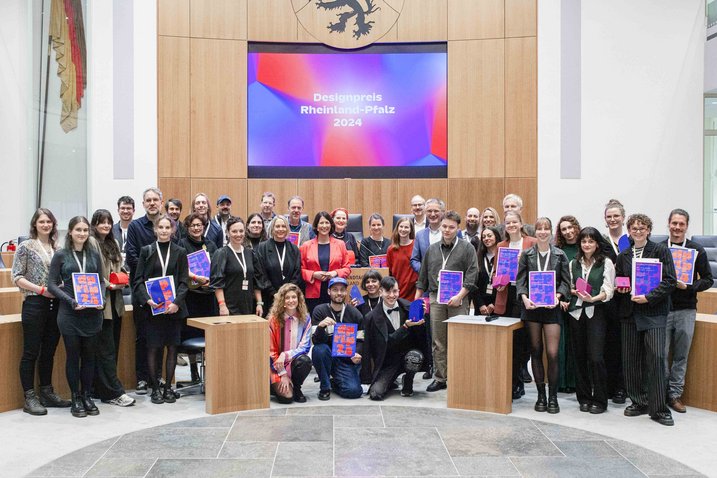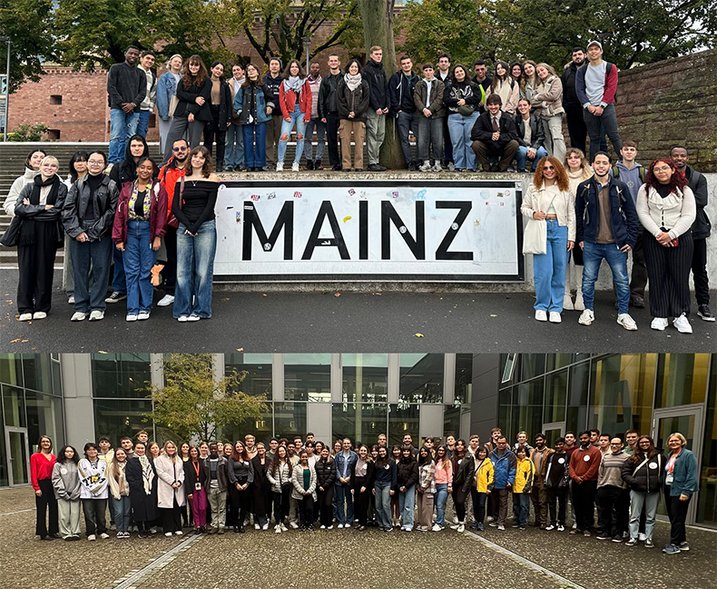- Three questions for... Professor Dr. Dirk Weitzel (only available in German)
Professor Dr. Dirk Weitzel has been teaching Information Systems in the School of Business since the beginning of September 2020. - Three questions for... Professor Linda Kruse (only available in German)
Professor Linda Kruse has been teaching Applied Game Concepts and Game Design in the Time-Based Media program since early November 2020.

Professor David Scherr, School of Design (Photo: Ivanka Penjak)
Professor David Scherr was appointed to Mainz University of Applied Sciences in early August 2020, where he teaches 3D computer animation in the Time-Based Media program.
Professor Scherr, what made you decide to make the switch to Mainz University of Applied Sciences?
Well, an opportunity like this doesn't come along every day. I didn't have to think too hard about it. I'm happy to pass on the knowledge I gained in my professional life to the students and, above all, to produce great work with them. In addition, I appreciate the creative and collaborative atmosphere and the general concept of time-based media, and the contact with the faculty was also very good from the start and I received a friendly welcome. So I'd like to say a big thank you for that!
What do you find most appealing about your new position?
The variety: Animation is a very broad field, and while you quickly become a specialist on the job, teaching requires a much more general approach. Ultimately it is not only about the artistic/technical rendering of computer-animated characters, it's about design, emotion, storytelling and much more. All of these are interdependent. The nice thing is, compared to some processes in a film production, where things are often done in a classic hierarchy: There are no fixed positions here. The deck is reshuffled for each project and discussions take place on equal footing. In addition, the students' ideas and projects are very diverse, and it's wonderful to see how they develop and mature from the idea to the finished piece.
The university is obviously the field where new trends and techniques in the industry are experimented with. Especially in computer animation, technical progress has always been a driving factor. Here, of course, you have more freedom and can try things out without economic constraints; which is a privilege not only for the students, but of course for the teachers as well. At the same time, it is clearly also a responsibility, but one that I enjoy very much.
What topic would you like to exchange ideas about with students in a relaxed setting?
There are plenty of topics. We live in crazy times, and the world is changing fast. Right now, the forced digitalization by the coronavirus, which was overdue in many respects, but also bears risks. Nature conservation and finite resources, a topic that has just disappeared from the spotlight again by far too much. The upheavals in the economy due to "disruptive" innovations and digital monopolization. Fake news and the filter bubble. The transformation of the working world brought about by AI and algorithms. This will also change things in our industry. How can we prepare for this? How can we deal with it as a society and what needs to change? As media professionals, we definitely have a responsibility here. And that's why we should ask ourselves these questions. But this can also be easily discussed in a relaxed atmosphere.
Under the heading "Three questions for", newly appointed professors will be introduced in random order. The following articles have already appeared in the "Three Questions for" series:



